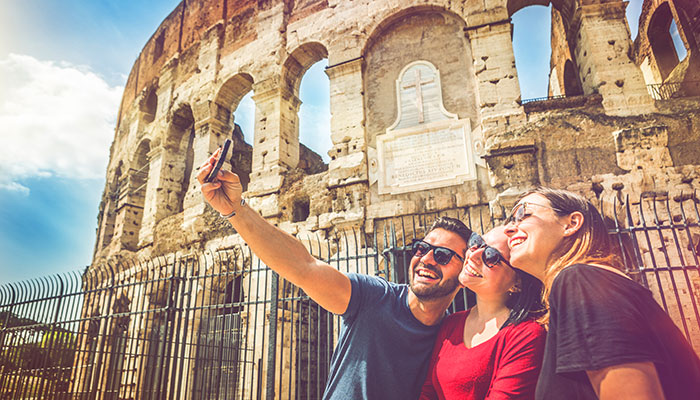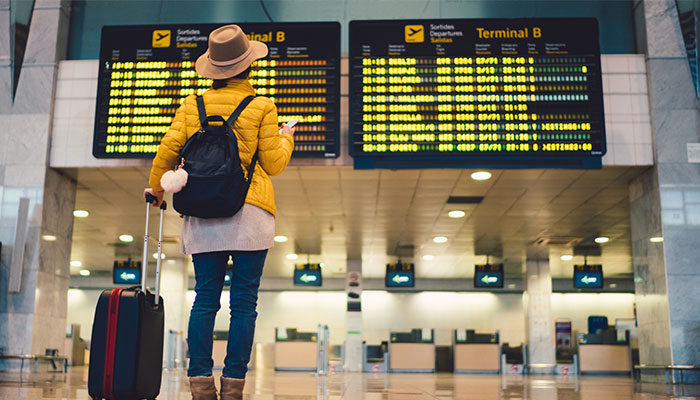Human beings are made to move and travel is one of the pleasures of modern life - and one we might do well to reflect upon during these difficult COVID-affected times. As philosopher George Santayana observes: "What is life but a form of motion and a journey through a foreign world?" People the world over have engaged in travel - whether in the form of migration, religious pilgrimage, or rites of passage - ever since modern humans emerged out of Africa.
For many of us, travel has been one of the most lamented losses due to the COVID pandemic, which has made travel one of the most eagerly anticipated activities to be pursued once global conditions become more favourable again.

Why do we travel? Travel, or the journey, has been a metaphor in literature and art for transformative life experiences—experiences which provide self-knowledge and change the person who has them. In the picaresque novel or the road movie, for example, characters undertake a journey beset with all manner of adventures; they are thrown together with strangers and confront obstacles, deal with dangers, resolve conflicts, and transform their outlook on the world. Travel is a way of exposing oneself to different worlds, gaining self-knowledge through experiencing other ways of life.
Travelling for 'likes'
Another reason to travel is to test oneself against an unfamiliar environment, challenging oneself in ways that would be impossible at home. It offers the opportunity to put ourselves to the test and experience how we might respond to an unfamiliar world, culture, or worldview – something we can only experience by 'being-there'.
Or one can take a vacation from one's ordinary work and social routines in order to experience an alternative way of life or simply relax and recuperate. All these forms of travel fall within the ambit of the tourism industry, so the idea of an authentic travel experience, taking one 'off the beaten track', seems rather remote.
With the advent of social media, some people now travel specifically to 'cool' destinations in order to heighten their 'social return' (the social payoff for posting about one's journey, for example, by gathering 'likes' on social media). The phenomenon of 'me-tourism' or 'selfie tourism' is a manifestation of a shift from experiential travel to travel as a means of social validation: travel provides attractive backdrops for a curated social media self-image rather than for experiencing the world or finding self-fulfilment.
A metaphor for life
Does travel make us better people? Philosophers are divided on this question. Nietzsche thought that one should never trust any thought that is not born in the open whilst moving freely about. Montaigne proclaimed: "One must always have one's boots on and be ready to leave." Some philosophers, however, have been more sceptical. Ralph Waldo Emerson criticised the passion for travel, declaring that the soul is no traveller; "the wise man stays at home", he claimed, and can be at home no matter where he or she might be - reassuring counsel, perhaps, during the age of COVID when travel seems risky or difficult.

Alain de Botton points out that travel is frequently disappointing, even boring, and is often more enjoyable in imagination than in reality. For some philosophers, travel is a metaphor for life, a way of existing in the world: always in motion, open to change, attuned to experience.
Lao Tzu perhaps put it best: "A good traveller has no fixed plans and is not intent on arriving." It is the attitude one brings to experiencing the world in a new light that makes travel meaningful.
In the meantime, we may have to be inventive and find alternative imaginative ways to travel, like French avant-garde writer Raymond Roussel, who in 1924 designed and built his own mobile 'dream vehicle', a 10-metre long 'house on wheels' or furnished 'land yacht' that allowed him "to travel almost literally, without travelling at all".
Perhaps the age of 'virtual travel' – via Google maps and VR immersion – will soon be upon us.
Robert Sinnerbrink is Associate Professor of Philosophy and an ARC Future Fellowship recipient.
* This story was first published in May 2018 and updated January 2021.






